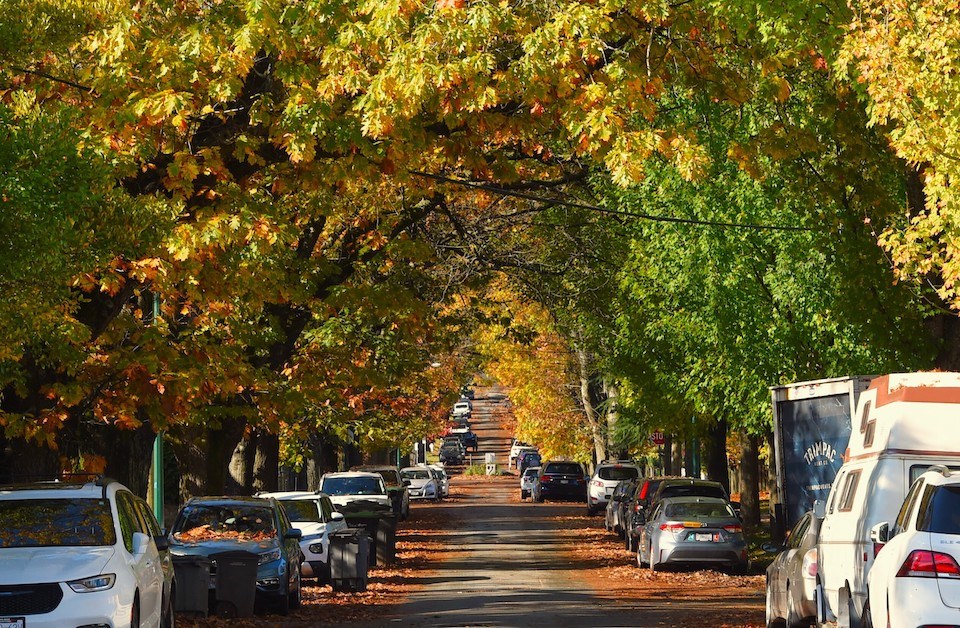The Metro Vancouver weather forecast included a decidedly frigid shift this week -- but the rest of fall might see temperatures trend slightly above average.
While Halloween trick-or-treaters may face some bone-chilling weather on the spookiest night of the year, there's a chance that they'll be met with a wetter, less chilly event.
A strong ridge of high pressure has kept some Arctic air in the Lower Mainland over the past few days and it is expected to maintain its frosty hold through the weekend until at least Halloween, Environment Canada meteorologist Derek Lee told V.I.A.
According to V.I.A.'s Downtown Centre Vancouver Weatherhood station, temperatures are expected to make their most dramatic dip overnight on Friday, Oct. 27, with a single-digit daily high of 9 C and overnight lows hitting the freezing mark in the city.
Similar temperatures are expected to persist through the weekend but the month has seen temperatures trending on the warmer side overall.
The national weather forecaster can't say with certitude whether the rain will arrive on Halloween or the following day. However, when it does arrive, it will likely arrive in the form of "an actual fall storm," Lee added.
The complete fall Metro Vancouver weather forecast and winter preview
Warmer than average sea surface temperatures should make conditions milder through the remainder of fall and heading into the start of winter, in part thanks to the arrival of El Niño.
November is expected to be warmer than average, although Lee can't say by exactly how much. A somewhat wetter trend is also expected, with "slightly above normal" amounts of precipitation.
In December, the national weather forecaster isn't getting a clear signal for the month's weather. But El Niño will likely influence local temperatures and is coming in "very strong" at the beginning of late December and into the start of January. There is an 80 per cent probability of it continuing to affect local weather through March.
"It's a pretty strong El Niño, meaning that the sea surface temperatures are much warmer, which means that B.C. should have a warmer winter," Lee described.
Characterized as the "warm phase of the southern oscillation," El Niño years sometimes see less snowfall than La Niño ones, which are typically a boon to alpine enthusiasts who are eager to hit the slopes, according to the U.S. National Oceanic and Atmospheric Administration (NOAA).
But that doesn't mean snowboarders and skiers should find an alternative hobby for the frosty season.
Lee says in El Niño years Metro Vancouver will see more rainfall and possibly snow, depending on how cold it gets. In other words, the weather phenomena isn't an exact predictor of how winter will pan out in Metro Vancouver -- particularly when it comes to things like snow and rain -- but it gives an idea of how cold conditions will likely be.



